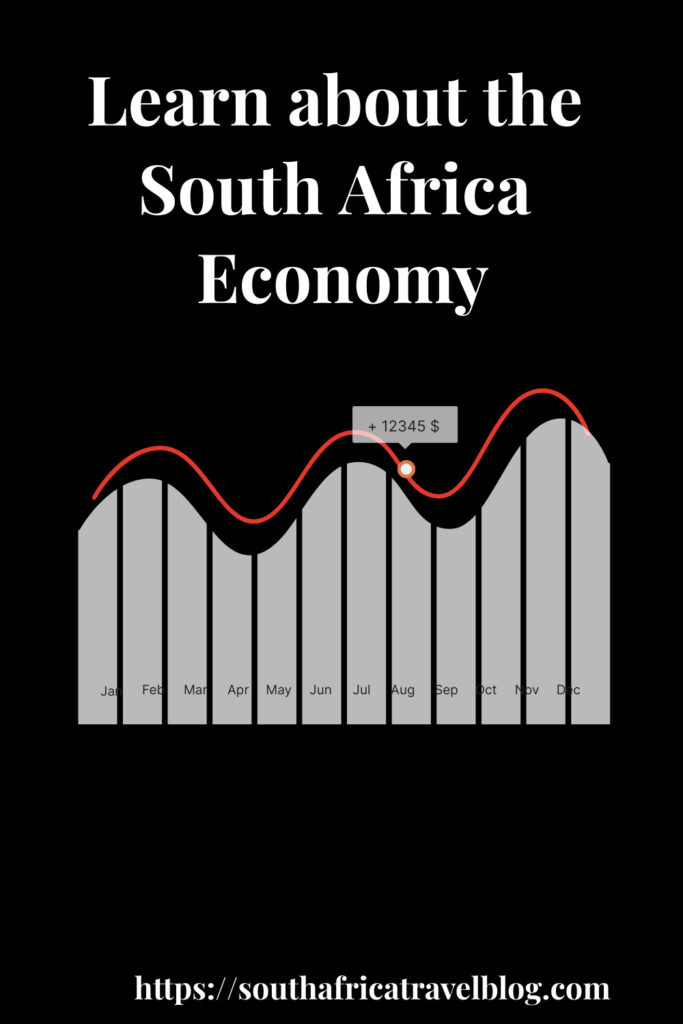South Africa’s economy has transformed significantly since the end of apartheid in 1994. Despite this, its average annual growth has been below global growth rates. Its growth has been volatile and follows the global economic performance.
The Structure of The South African Economy
South Africa’s tertiary sector contributes over 22% of its GDP, mainly owing to the financial sector, specifically the banking sector. Trade and transport also contribute to the tertiary sector. In contrast, the secondary sector’s contribution to GDP has decreased since 1994 due to a decrease in the manufacturing sector. The construction sector has a vital role in enhancing economic activity.

Although the primary sector’s share of the GDP remained stable over time, its structure changed dramatically. The agriculture sector decreased due to mainly the mechanisation of farming activities. The most commonly grown items include sugarcane, potatoes, milk, maise, oranges, poultry and beef. The mining sector’s contribution declined because of a change in the minerals regulatory regime and insufficient reporting. South Africa is the largest producer of chromium, gold and platinum globally. The services sector led to overall economic growth because of expanding telecommunications, retail and wholesale trade sectors.
South Africa Has the Most Advanced Banking System in Africa
According to the World Economic Forum, South Africa has the most advanced banking system in Africa. Despite this, South Africa is not the largest economy in Africa and only features third on the list after Nigeria and Egypt. South Africa is the 7th most developed country in Africa, with Mauritius, Seychelles and Algeria topping the list.
You can read more about South African money here!
Largest Stock Exchange in Africa
South Africa is an emerging market economy with a middle-income level. It has an ample supply of natural resources. Its stock exchange is Africa’s largest and features in the top 20 stock exchanges of the world.
South Africa’s Economic Challenges
South Africa has several economic challenges, including high unemployment, poverty, and inequality. Its levels are among the highest globally. Unemployment is high at approximately 27% of the labour force.
The country has a modern infrastructure to support an efficient distribution of products to the main urban centres. Still, it has an unstable electricity supply that is retarding its economic growth. Eskom is a state-run power supplier, and there have been accusations of mismanagement and corruption.

South Africa focuses on controlling inflation while empowering a broad economic base. The country has some structural constraints limiting its economic growth, including skills shortages, frequent strikes resulting in work stoppages and declining global competitiveness.
Some pressures on the government are improving the delivery of essential services to low-income areas, increasing jobs, and providing university education at affordable prices. There is infighting in the ruling political party. South Africa’s currency is volatile and may reduce the country’s economic growth. International investors have expressed concern about the country’s economic stability over the long term.
The labour force is concentrated in the services sector (72%), industry (24%) and agriculture (4%).
Sources:
Most Developed Countries in Africa 2021
Global Competitiveness Report 2014-2015
